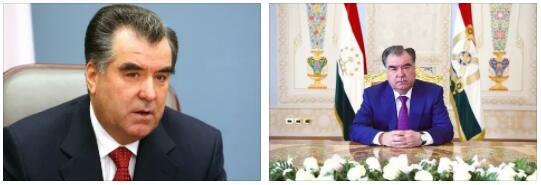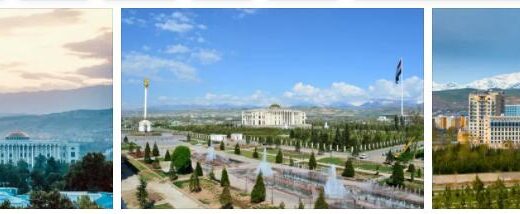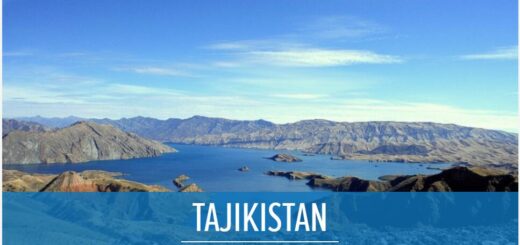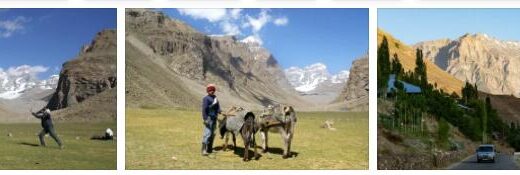State Structure and Political System of Tajikistan
Tajikistan is a republic. In administrative-territorial terms, it is divided into Sughd, Khatlon regions, Gorno-Badakhshan Autonomous Region and regions of republican subordination. The capital and adjacent 8 districts form a separate administrative-territorial unit. Check equzhou for political system of Tajikistan.
Major cities: Dushanbe, Kulyab, Kurgan-Tube, Garm, Murgab, Khorog.
The head of state and executive power is the president. E.Sh. Rakhmonov was elected on November 6, 1994, on November 6, 1999 he was re-elected for 7 years in accordance with the changes made to the Constitution following a referendum on September 26, 1999, in the summer of 2003, the powers of E. Sh. Rakhmonov were extended until 2020.
The government issues resolutions and orders, the execution of which is mandatory on the territory of Tajikistan. The government resigns its powers before the newly elected president.
Prime Minister – A. Akilov.
Legislative power – parliament – Majlisi-Oli. His term of office is 5 years. In 1999, the unicameral parliament was transformed into a bicameral one: the Majlisi Namoyandagon (House of Representatives) and the Majlisi Milli (National Assembly).
The Majlisi Namoyandagon consists of 63 deputies, of which 41 are elected by secret ballot in single-mandate constituencies, and 22 are from political parties and movements. A citizen not younger than 25 years old can be elected as a deputy. In February 2000, elections were held, the People’s Democratic Party of Tajikistan (PDPT) received 34 seats in the lower house, communists – 13, Islamists – 2, independent deputies – 14. The chairman of the chamber is S.Kh. Khairulloev.
Majlisi milli is formed by local authorities (25 people). In addition, 8 deputies are appointed by the president. Members of the House are also, at their request, former heads of state. In March 2000, elections were held in 5 constituencies formed in the main regions of the country. Most of the deputies were representatives of the ruling PDPT. Chairman of the Chamber M.U. Ubaydulloev (the current mayor of Dushanbe; according to the Constitution, he became the second person in the state). Check homeagerly for democracy and human rights of Tajikistan.
Local government consists of representative and executive bodies. They ensure the implementation of the Constitution, laws and legislative acts. The body of local representative power in regions, cities and districts is the Majlis of People’s Deputies, which is headed by the chairman. Deputies of local Majlises are elected for a term of 5 years. This body approves the local budget and a report on its implementation, determines the ways of socio-economic development of the territory, local taxes and payments in accordance with the law, determines the methods of management and ownership of communal property, etc.
Local executive power is exercised by the representative of the president – the chairman of the region, city and district. The Chairman is responsible to the higher executive body and the relevant Majlis of People’s Deputies. The self-governing body in the settlement and village is the jamoat.
Main political parties: People’s Democratic Party of Tajikistan, Communist Party, Islamic Revival Party of Tajikistan, Democratic Party of Tajikistan, National Unity Party, Political and Economic Renewal Party, etc.
The development of the situation in Tajikistan is determined by the course of implementation of the agreement on establishing peace and national accord. The compromise found by the government side and the UTO made it possible to stop the civil war. The military formations of the UTO were disbanded, some of them joined the power structures of the government. A referendum was held at which amendments and additions to the Constitution were adopted.
The transitional period, defined by the 1997 agreement, ended with the holding of parliamentary elections based on a new version of the Constitution.
By the decision of the UN Security Council, the mandate of the UN Mission of Observers in Tajikistan was terminated. To promote post-conflict development in Tajikistan, the UN Office began working in Dushanbe to provide political support for the activities of the UN system in the interests of implementing programs for the socio-economic recovery of the country.
The foreign policy of Tajikistan with the completion of the process of inter-Tajik settlement is aimed at creating conditions favorable for the restoration of the national economy, destroyed during the civil war, strengthening the sovereignty and territorial integrity of the country.
Priority for Tajikistan are relations with the Russian Federation and other CIS countries. Dushanbe is a supporter of strengthening integration processes in the political, military, economic and other fields. Tajikistan joined the Customs Union (since October 2000 – the Eurasian Economic Community), signed all the multilateral agreements concluded within the CIS. Tajikistan stands for the intensification of collective efforts in the fight against international terrorism and drug trafficking. An important place in foreign policy is occupied by the Central Asian countries, primarily Uzbekistan. Tajikistan is a member of the CACO. Great importance is attached to the issues of strengthening regional security.
Tajikistan is participating in the development of the Treaty on a nuclear-free zone in Central Asia. Tajikistan seeks to develop relations with the Islamic world, primarily with Iran. Tajikistan consistently advocated a political settlement of the Afghan conflict through negotiations and the creation of a broadly representative government, participated in the work of the “group of neighbors and friends of Afghanistan” (“Six Plus Two”).
Since the autumn of 2001, ties with the United States and Western European states have revived. Dushanbe pays considerable attention to the issues of interaction with the UN, stands for strengthening its stabilizing role. At the 54th session of the UN General Assembly, Tajikistan put forward a proposal to declare 2003 the International Year of Fresh Water. Tajikistan is interested in continuing and expanding contacts with the OSCE, stands for its greater involvement in the provision of economic and environmental assistance in the post-conflict period, and the strengthening of regional security.
Diplomatic relations with the Russian Federation were established on April 8, 1992.
The armed forces of Tajikistan, according to local estimates, number approx. 20 thousand people: government army – approx. 12 thousand, integrated detachments of the UTO – 8 thousand. According to the International Institute for Strategic Studies (London), the number of the Tajik army is 6 thousand people.



